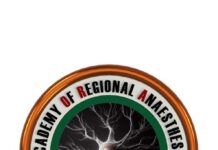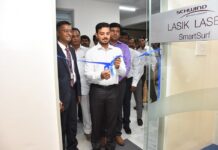

Taking prescription medication could soon be as simple as wearing contact lenses, thanks to a groundbreaking discovery by researchers at the University of Waterloo. A collaborative team from Waterloo’s Department of Chemistry and School of Optometry and Vision Science has developed a novel hydrogel that, when 3D printed onto a contact lens, can deliver drugs to treat various eye conditions.
The research, published in ACS Applied Bio Materials under the title “Injectable and 3D Extrusion Printable Hydrophilic Silicone-Based Hydrogels for Controlled Ocular Delivery of Ophthalmic Drugs”, introduces a silicone-based hydrogel capable of holding and releasing medication over time. This innovation aims to improve drug administration efficiency and patient compliance by continuously delivering medication during regular contact lens use.
The hydrogel, made from a water-attracting silicone material, overcomes challenges typically associated with 3D printing silicone. It is UV-curable, flexible, and durable, allowing it to maintain its shape under stress. The hydrogel’s macro-porous structure enables controlled drug release, as demonstrated during tests with amoxicillin, a commonly used antibiotic for eye-related ailments.
“Once we confirmed the hydrogel’s strength and flexibility, we tested its ability to encapsulate and release drugs, with promising results using amoxicillin,” explained Shirley Tang, a professor in Waterloo’s Department of Chemistry and Associate Dean of Research in the Faculty of Science.
Unlike traditional eye drops, which often require frequent applications and can be challenging for patients to administer, hydrogel-loaded contact lenses offer a convenient alternative. The medication is delivered passively and steadily during normal wear, reducing discomfort and improving adherence to treatment regimens.”This method is far more efficient and user-friendly than eye drops, which require frequent application and can be difficult for many patients,” said Lyndon Jones, director of Waterloo’s Center for Ocular Research & Education.
As reported by medicalxpress, the researchers also demonstrated the material’s stability, finding that encapsulated drugs remained effective and unchanged even after a month in storage. This makes the hydrogel a viable option for long-term medical applications.”Our results showed the hydrogel is safe for human eyes and suitable for diverse biomedical uses,” noted Sayan Ganguly, a post-doctoral researcher in the Department of Chemistry.
The team has filed a patent for this innovative technology and plans to explore further applications for hydrogel-loaded contact lenses in treating eye conditions. This development could mark a significant advancement in ocular drug delivery and patient care.






















